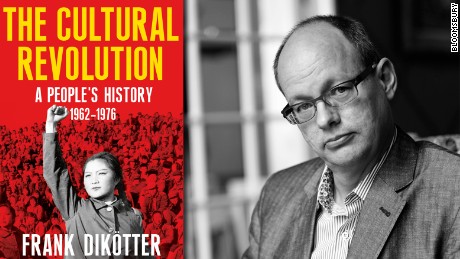
“There were so many pent up grievances caused by years of Communist rule. “There were endless numbers of people, who when they are asked by Mao to criticize Party members, simply can’t wait,” says Dikotter.

At the rally, Mao loyalist and defense chief Lin Biao told those assembled to attack “counter revolutionaries” and destroy the Four Olds of customs, culture, habits and ideas. On August 18, 1966, more than a million Red Guards gathered from all over the country in Beijing’s Tiananmen Square.

“Stalin, Pol Pot, Kim Jong Un, none of them would ever think of asking ordinary people to attack the very machinery they themselves built up.” “He pretty much asked the people to attack the Party, which we’ve never seen before or since,” says Dikotter. What began in the universities of Beijing soon spread to wider society, with Mao personally writing a big-character poster entitled “Bombard the Headquarters” calling for an attack on the “command center of counter-revolution.” With his May 16 declaration, Mao sought to unleash the power of the people against his enemies in government.

Hundreds of thousands of people were killed as the country fell into what Dikotter describes as civil war, with different Red Guard and People’s Liberation Army (PLA) factions fighting each other, and millions more were displaced and traumatized as society broke down around them.Ĭhina’s ‘lost generation’ recall hardships of Cultural Revolutionįollowing the unmitigated disaster of the Great Leap Forward - in which tens of millions of ordinary Chinese died as a result of Mao’s policies - the Chairman was at perhaps his most vulnerable point since the end of the Second World War. “It was a social explosion of an unprecedented scale,” says Frank Dikotter, author of the new book “ The Cultural Revolution: A People’s History.” Mao’s declaration condemned the Chinese Communist Party (CCP), the army and the government for having been infiltrated by “representatives of the bourgeoisie” and “counter-revolutionary revisionists.”

On May 16, 1966, Mao Zedong issued the first ideological salvo of the Cultural Revolution, a tumultuous political campaign that would go on to consume China in bloodshed, torture and chaos for almost a decade, and change the country forever.


 0 kommentar(er)
0 kommentar(er)
